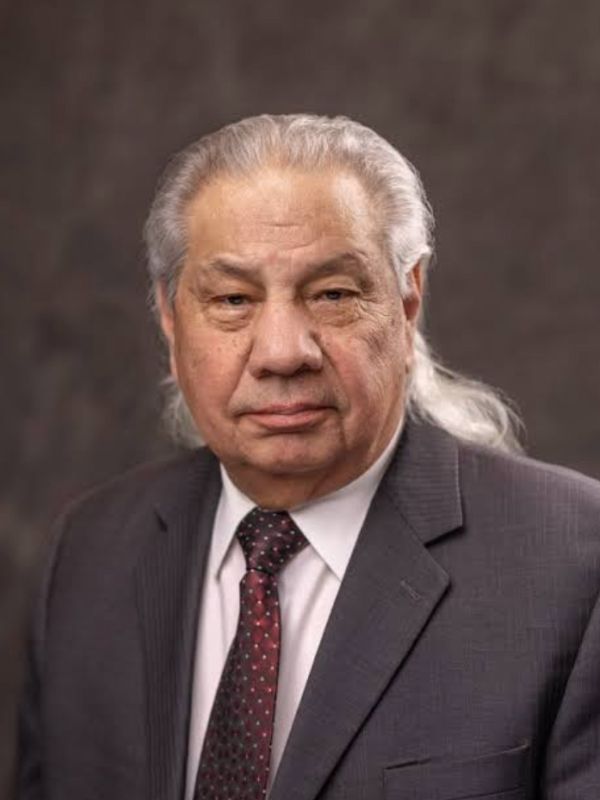Trailblazing Native American attorney John E. Echohawk (Pawnee Nation) was honored with the prestigious Thurgood Marshall Award from the American Bar Association (ABA) on August 5 at ABA Annual Meeting in Denver.

The award was established to honor the impact and legacy of U.S. Supreme Court Justice Thurgood Marshall, a civil rights lawyer, and the court’s first Black justice. As an attorney, Marshall won 29 of the 32 civil rights cases he argued before the U.S. Supreme Court, creating equal access to public education and desegregating law schools by removing laws and policies that allowed discrimination to persist in American society. Marshall served on the court from 1967 to 1991 after he was nominated by President Lyndon B. Johnson.
“As an attorney, Thurgood Marshall removed barriers so his community could seek justice, and as a U.S. Supreme Court justice, he vigilantly defended the equal application of the law for each of us for 34 years,” said Echohawk in a statement.” The American Bar Association honors his legacy and the lifelong commitment it takes to address societal inequities by bestowing the Thurgood Marshall Award. I am very honored to stand among the recipients of this award.”
Now, Echohawk works to achieve equality for Native Americans, dedicating his career to defending the rights of tribal nations and Native people, which he calls an “unending and complex legal necessity.” Throughout history, and still today, treaties between the federal government and tribal nations are either violated or not upheld.
In 1970, Echohawk earned a J.D. from the University in of University of New Mexico School of Law and was the first Native American to graduate from the program.l While here, Echohawk was a founding member of the American Indian Law Students Association.
After he graduated from law school, he began working for California Indian Legal Services. In August 1970, he co-piloted a Ford Foundation-funded program that aimed to offer legal services to federally recognized tribes across the United States. This is the initiative that became what is known today as NARF, a non-profit law firm that works to uphold Indigenous rights by protecting tribal resources, ensuring government responsibility, expanding Indian law, and educating on Native American issues.
Echohawk has served as NARF’s executive director since 1977. Under this leadership, NARF has provided legal representation and technical assistance to tribes, organizations, and Native American individuals across the United States in legal cases that have come to define Native American rights, including cases that led to the passing of the Native American Graves Protection and Repatriation Act and upheld the Indian Child Welfare Act.
As well, Echohawk services on a number of boards across Indian Country, including the American Indian Resources Institute, the Association on American Indian Affairs; the Indigenous Language Institute; the Natural Resources Defense Council; and the National Center for American Indian Enterprise Development.
In addition to this new award, he has also been recognized as one of the 100 most influential lawyers in America by the National Law Journal and has received numerous service awards and other recognition for his leadership in the Indian law field.
More Stories Like This
Native News Weekly (August 25, 2024): D.C. BriefsUS Presidents in Their Own Words Concerning American Indians
Native News Weekly (December 14, 2025): D.C. Briefs
Wounded Knee Massacre Site Protection Bill Passes Congress
Two Murdered on Colville Indian Reservation
Help us defend tribal sovereignty.
At Native News Online, our mission is rooted in telling the stories that strengthen sovereignty and uplift Indigenous voices — not just at year’s end, but every single day.
Because of your generosity last year, we were able to keep our reporters on the ground in tribal communities, at national gatherings and in the halls of Congress — covering the issues that matter most to Indian Country: sovereignty, culture, education, health and economic opportunity.
That support sustained us through a tough year in 2025. Now, as we look to the year ahead, we need your help right now to ensure warrior journalism remains strong — reporting that defends tribal sovereignty, amplifies Native truth, and holds power accountable.
 The stakes couldn't be higher. Your support keeps Native voices heard, Native stories told and Native sovereignty defended.
The stakes couldn't be higher. Your support keeps Native voices heard, Native stories told and Native sovereignty defended.
Stand with Warrior Journalism today.
Levi Rickert (Potawatomi), Editor & Publisher

